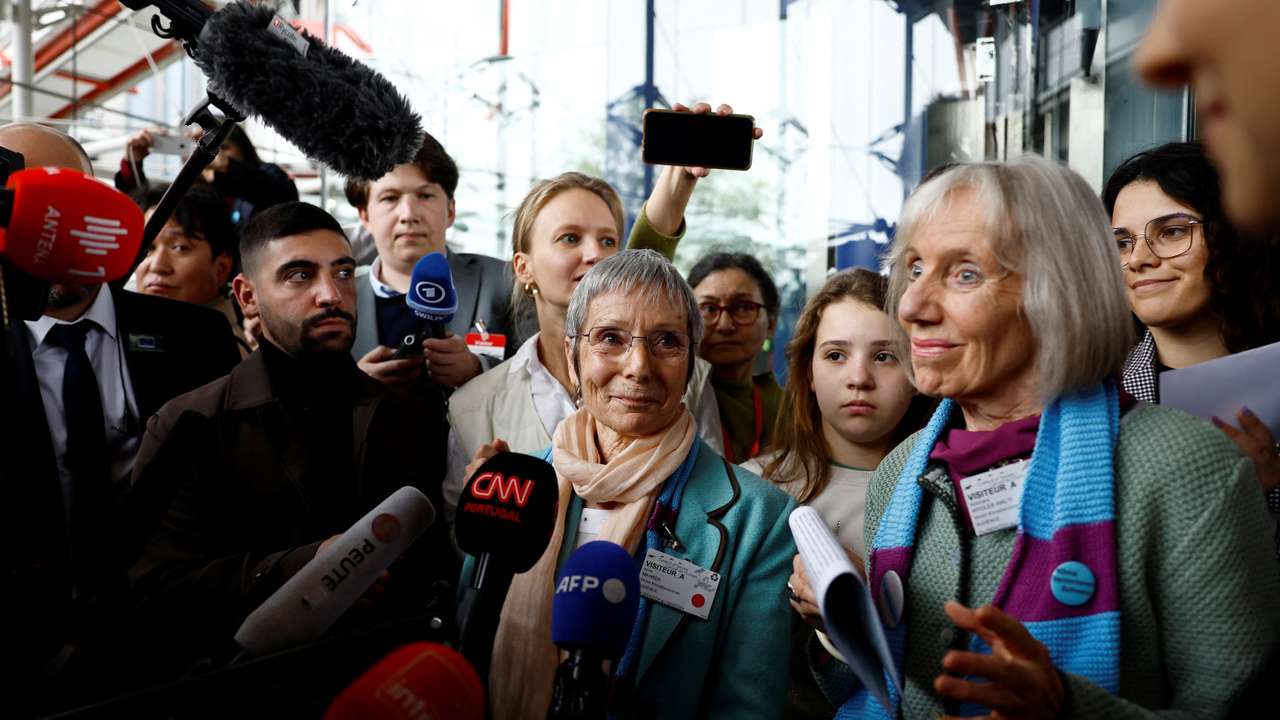Factbox-Swiss women win big in a landmark climate case. Where do US climate cases stand?
- #Advocacy Groups
- #Pressure Groups
- #Lobbies
- #Pollution
- #Fundamental Rights
- #Civil Liberties
- #Climate change
- #Climate Policy and Regulation
- #Environment
- #Europe
- #Factboxes
- #Greenhouse Gases
- #Judicial Process
- #Court Cases
- #Court Decisions
- #North America
- #government
- #Politics
- #Corporate
- #Market Regulation
- #Hawaii
- #Climate Politics
- #Advocacy Groups
- #Pressure Groups
- #Lobbies
- #Pollution
- #Fundamental Rights
- #Civil Liberties
- #Climate change
- #Climate Policy and Regulation
- #Environment
- #Europe
- #Factboxes
- #Greenhouse Gases
- #Judicial Process
- #Court Cases
- #Court Decisions
- #North America
- #government
- #Politics
- #Corporate
- #Market Regulation
- #Hawaii
- #Climate Politics

Factbox-Swiss women win big in a landmark climate case. Where do US climate cases stand?
By Clark Mindock
A landmark climate change ruling from the European Court of Human rights on Tuesday found that the Swiss government had violated the human rights of its citizens by failing to do enough to combat climate change, in a case brought by a group of older Swiss women.
In the United States, similar litigation has been filed largely on behalf of young people who claim their futures and health are jeopardized by climate change.
Here is a look at where those cases stand.
YOUTH-LED EFFORT
There are at least three youth-led climate cases pending in U.S. federal trial courts and state court in Hawaii. Youth plaintiffs have already notched one big win in Montana state court.
The lawsuits broadly accuse governments of exacerbating climate change through policies that encourage or allow the extraction and burning of fossil fuels. The young people, represented by the nonprofit law firm Our Children's Trust, claim the policies violate their rights under U.S. or state constitutions.
The firm says that six U.S. states' constitutions provide an express right to a healthful environment, but 32 other states have environmental or natural resource protections enshrined in their state constitution in some other way.
Cases filed in Virginia and Utah state courts were dismissed before they went to trial, and Our Children's Trust is appealing those dismissals. Earlier cases in Alaska, Florida and Washington state making similar claims were also dismissed before trial.
JULIANA V. USA
One of the longest-running cases was filed in 2015 by 21 young Americans against the U.S. government in an Oregon federal court.
The young plaintiffs in Juliana v. USA have argued that U.S. energy policy violates their rights to life, liberty and property enshrined in the U.S. constitution.
While the plaintiffs had originally sought a court order forcing the government to prepare a remedial plan to stop fossil fuel emissions, the San Francisco-based 9th U.S. Circuit Court of Appeals dismissed the case in 2020 saying the judiciary can’t mandate broad policy changes.
A federal judge last year gave the young plaintiffs the go-ahead to file a trimmed version of their lawsuit that only seeks a declaration that U.S. energy policy violates their rights.
The Biden administration has called the climate crisis an “urgent problem” but asked the 9th Circuit in February to force the district court to dismiss the case. The government has argued climate change is a complex and sprawling problem that requires the broad policymaking powers of Congress and the executive branch, and can't be adequately addressed by limited remedies available to courts.
A second federal case against the U.S. Environmental Protection Agency is also pending in California federal court.
MONTANA’S LANDMARK RULING
A group of 16 young people in Montana were the first to bring their case to trial last year, arguing the state had violated a state constitutional provision guaranteeing citizens a healthy environment, and came away with a landmark victory in August.
State Judge Kathy Seeley in Helena found that Montana’s permitting of projects like coal and natural gas production exacerbated the climate crisis, in violation of a 1972 amendment to the Montana constitution requiring the state to protect and improve the environment. The state is currently appealing.
UP NEXT: HAWAII
A case involving 14 young Hawaiians is set to be the second youth climate case to go to trial in June. The plaintiffs are asking for a declaration that the state's transportation department has violated a constitutional duty to protect the environment by promoting and funding highway projects that encourage fuel consumption and greenhouse gas emissions.
They are also seeking a court order telling the department to take unspecified but “concrete action steps” to reduce emissions and appoint a special master to oversee those changes.
This article was produced by Reuters news agency. It has not been edited by Global South World.